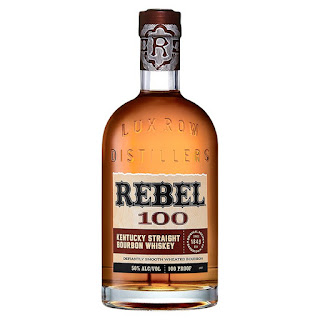Last week I attended the Glasgow launch of Bruichladdich's new Biodynamic malt at Rémy Cointreau's offices in Blythswood Square.
There were wonderful canapés provided by Fallachan (that Chicken of the Wood - good lord what a flavour), excellent mixed drinks by (my colleague) Danny McManus, and I had several fascinating conversations with different 'Laddie folks around the topics of biodynamics and sustainable agriculture. We even drifted slightly into terroir territory. But most importantly, we tasted the whisky.
We were joined from the Bruichladdich distillery by head distiller Adam Hannett, who talked us through the growing of the barley and the making of the whisky.
Here are the facts I found most interesting or important about this new whisky:
- Biodynamically grown barley gave Bruichladdich higher yields than conventionally grown crops of the same variety.
- The whisky making isn't biodynamic, just the farming of the barley itself. Adam says that, with Bruichladdich making so many different expressions, they prefer to keep the brewing and distilling processes the same, since they're focused on barley varieties, locations (the T-word again), and barrel type. Although he's not ruling out future experiments with yeasts...
- As yet, Bruichladdich doesn't have any Scottish biodynamic growers, so for this cuvée they sourced the barley from Yatesbury House Farm in Wiltshire. It's their only expression not made with Scottish barley, and I did rather get the impression that Bruichladdich is a little unsure of how their fans and followers will respond to that point of difference.
Tasting Notes
This is a cask sample at 55%, whereas the finished product will be bottled at 50%. It was distilled in 2011 from a variety called Westminster, and the whole batch has been matured in first fill ex bourbon barrels.
To nose, it's bright and fresh, with a slight initial spirity fire. There's a load of sweet dried grass or haylage, plus a real honey sweetness. Over time, fruitiness develops - peaches, stone fruits, ripe yellow orchard fruits.
With water there's more fruit and less grassiness, and I also found a floral note; specifically roses.
The palate is full bodied, very sweet, and mouth coating. I'm reminded of vanilla ice cream and peaches. There is a drying oak note in the finish, which is more emphatic with water. As with the nose, adding water brings out more fruit character - ripe yellow apples, peaches, and other stone fruits.
In conclusion, I enjoyed this whisky very much. Comparing this with other expressions of the 'Laddie, I'd say it has a
really rich, mouth coating texture — oily, even. It also seems sweeter
than most, and I didn't find any of the lactic or funky notes that I
would often associate with the distillery. Excellent, would recommend.
You can read more about this whisky on Bruichladdich's website.



